Product
Scheduling
Time & Attendance
Forecasting
HR
Shift Management
Task Management
Performance Management
Employee Engagement
Labor Forecasting Software
Eliminate guesswork with 41% more accurate forecasting.
Import demand data, assign staffing ratios, and schedule staff more accurately in one system.
8,134 + reviews
Import demand data, assign staffing ratios, and schedule staff more accurately in one system.
8,134 + reviews
Trusted by over 10,000 businesses





Connect any demand data
-
Import sales, weather, foot traffic, or any custom data to map out your staffing ratios. Our machine learning algorithm uses the data most relevant to your business to accurately build demand-based schedules while accounting for external factors like economic trends and local events.
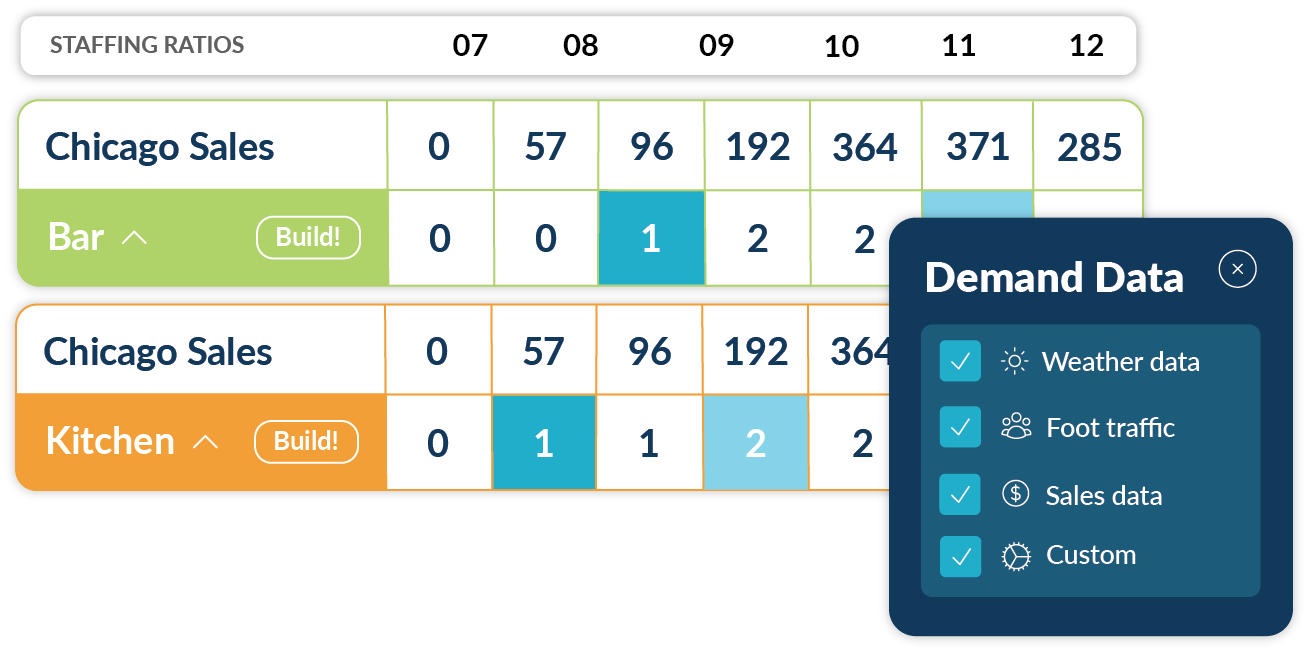
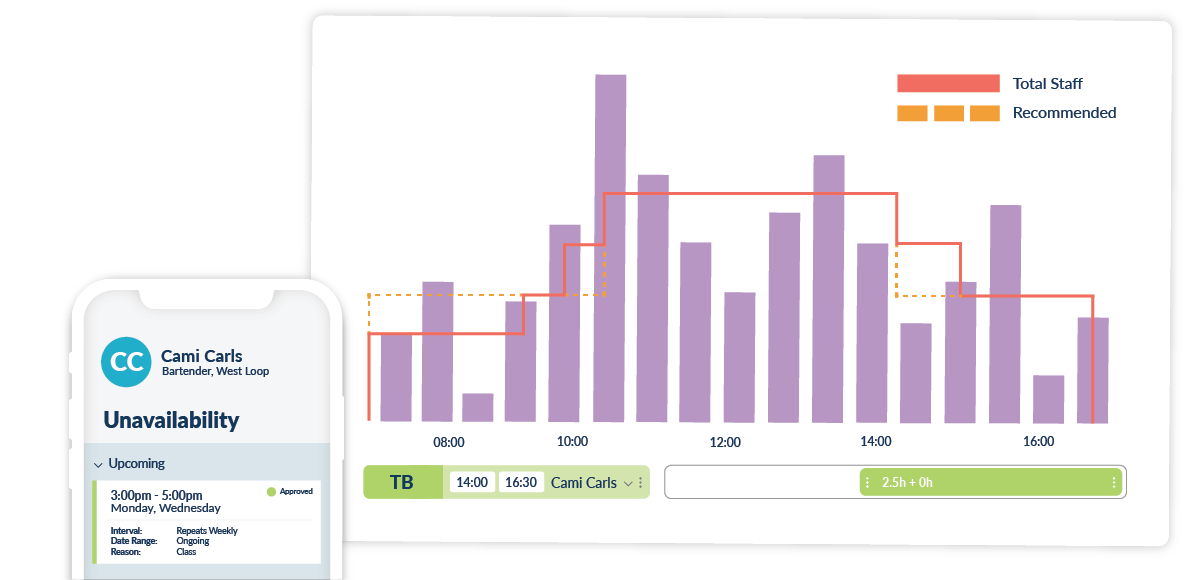
Get more coverage without more staff
-
Optimize staffing ratios by automatically accounting for unavailability, time off, and daily fluctuating demand levels so you only schedule employees when you really need them. Doing this mitigates the pressure of staffing shortages that reduce your operating capacity.
Cut unnecessary overtime
-
Automatically flag overtime hours on schedules in real time to help you determine which scheduled shifts are in danger of accruing daily or weekly overtime. Visibility into scheduled overtime helps you prevent unnecessary higher rates from spiking your labor costs.
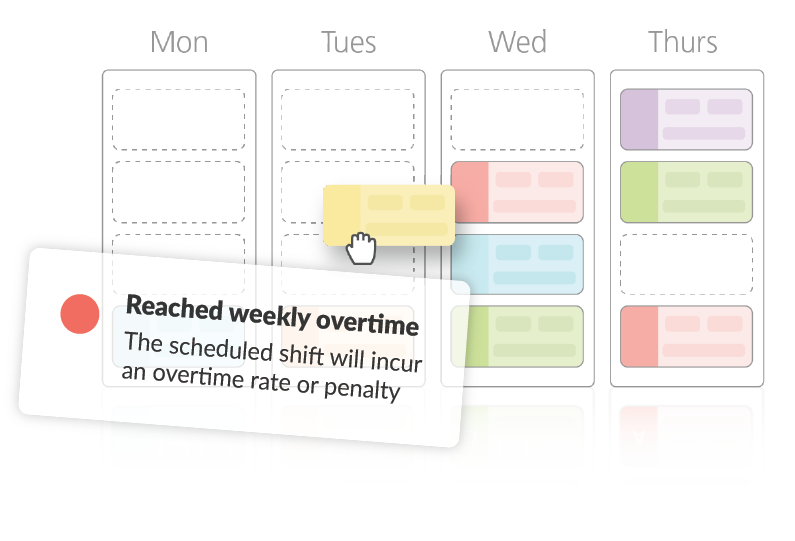
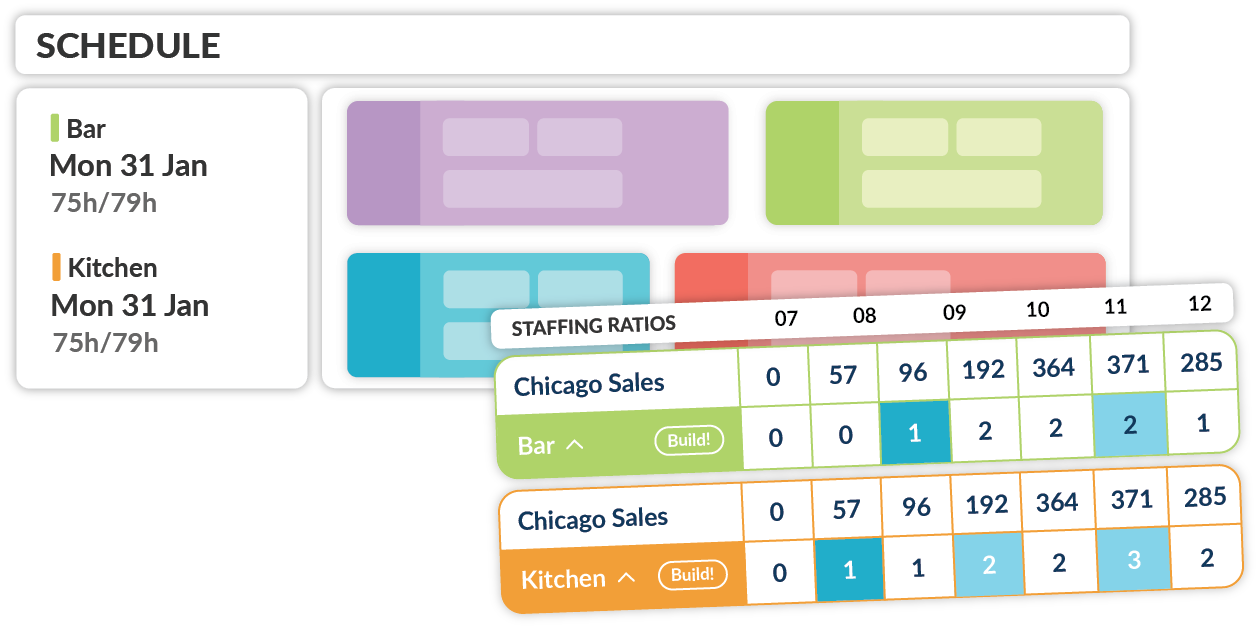
Schedule directly from your forecast
-
Forecast your labor needs and build a schedule to match them – all in a single system. This way your managers aren't wasting time importing or re-entering data from Excel forecasts.
Fix your lowest-performing locations
-
Set staffing ratios to enforce scheduling standards and track live reports to make sure managers are following the forecast and sticking to the labor budget. Every manager gets all of the tools and none of the excuses to hit their sales per labor hour goals.
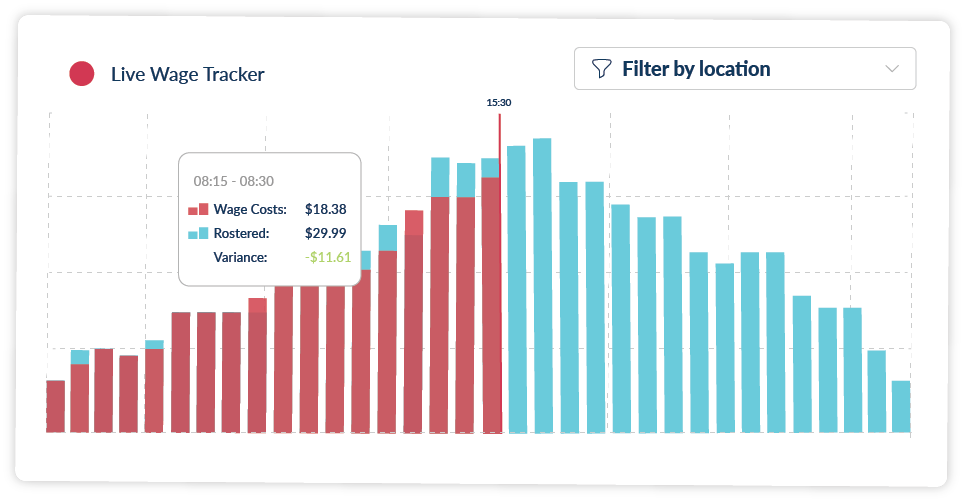
What's Included
-
Want to learn more about a specific feature?
Get a demo
-
Historical demand data
Upcoming demand data
Machine Learning Extrapolation
POS integration for sales data
-
Weather forecasts
Staff Availability
Staffing Ratios
Scheduling
Still have questions? Want to learn more? Schedule a time with one of our product specialists.
Frequently Asked Questions
What is labor forecasting software?
Labor forecasting software is a function of workforce management that uses AI and machine learning to accurately match labor allocation to predicted customer demand.
How do I forecast my labor requirements?
The first step is to create an accurate forecast for demand using historical data, economic trends, and external patterns. From there, a labor demand model is created that determines the optimal ratio of staff needed to meet the predicted demand. This labor model is then applied to the scheduling process, automatically building out a schedule that prevents inefficiencies like overstaffing, understaffing, and much more.
How do I forecast demand?
Demand forecasting works by feeding both customer data (sales, orders, transactions, etc.) and external data (weather, holidays, events, etc.) into mathematical models. These models then learn the relationship between variables to create demand predictions.
Where do I find my demand data?
Typically, you can find basic demand data (like historical sales) in your Point of Sale System (POS). Workforce.com has integrations with a variety of POS providers – simply connect and upload your demand metrics to start forecasting in Workforce.com.
How do I prevent understaffing?
You can avoid persistent understaffing by using AI labor forecasting to map staffing levels to predicted demand. Knowing four weeks out what your expected sales are every day and for every shift makes it easy to ensure the correct number of employees are working at the right times.
Is labor forecasting a workforce management solution?
Yes. Along with employee scheduling, time tracking, and labor compliance, labor forecasting is a critical part of workforce management as well as human capital management.
Does labor forecasting reduce my compliance risk?
It absolutely does. Labor forecasting uses machine learning to match staffing levels to predicted demand, helping you create highly efficient schedules. This means you’ll never accidentally exceed an employee’s maximum hours or incur unnecessary overtime.
How much time does labor forecasting take?
The goal of labor forecasting software is to save your administrative workers time and enhance your frontline decision-making. Workforce.com’s forecasting does all the legwork for you, featuring advanced automation and AI functionality that generates predictions in minutes.
Why is labor forecasting critical to workforce scheduling?
Scheduling becomes faster, more accurate, and more efficient when paired with labor forecasting. Accurate forecasts eliminate uncertainty in the scheduling process, drilling down exactly how many and what kinds of employees are needed to meet predicted demand. By integrating labor forecasting with your employee scheduling software, you can automatically build and populate a schedule based on your forecasted demand and labor model.
How much does labor forecasting software cost?
Visit our pricing page to request a quote today.
Where can I find additional resources on labor forecasting?
Check out the latest human resources and workforce management on our blog, watch a webinar, or read one of our many whitepapers!

